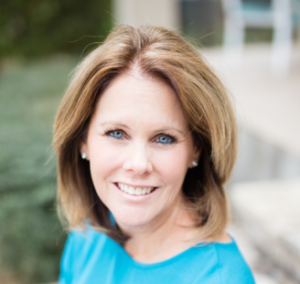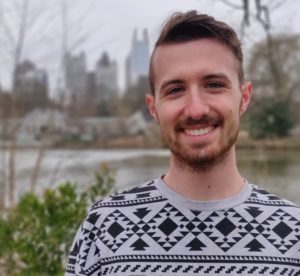Baylor University undergraduate Anna Conner knows an awful lot about Baptist theology for a 20-year-old Lutheran.
She attributes that partly to all the religion courses she’s taken, and also to a high-profile struggle between the university and the gay-straight student alliance to which she belongs.

Anna Conner
The group, Gamma Alpha Upsilon, suffered a setback May 17 when the university’s board of regents declined to change Baylor policy banning “advocacy groups which promote understandings of sexuality that are contrary to biblical teaching.”
For Conner, who is gay and vice president of the group previously called the Sexual Identity Forum, the decision contradicts what she’s learned at Baylor about Baptists’ historic values.
“I spent last year taking all these required Christian classes and learned about Baptists, and yet they (Baylor regents) ignore principles of autonomy by doing these things,” she said.
GAU has been applying for official recognition since 2011, but has consistently been denied because of the policy governing student groups. Such recognition allows clubs to reserve rooms, advertise, apply for student activities funds and invite speakers to campus.
GAU members are not alone in their efforts. A host of other student, faculty and alumni supporters have waged a campaign to bring inclusion to Baylor.
The issue burst forth in April when Baylor’s student chapter of Young Americans for Freedom hosted conservative blogger Matt Walsh for a speech on campus. Walsh is outspoken in his opposition to the “LGBT agenda.”
In response, at least 3,200 students and alumni wrote and signed an online, open letter urging Baylor President Linda Livingstone and Vice President for Student Life Kevin Jackson to recognize the gay-straight student organization.
The open letter wasn’t a request for a policy change. Nor did it seek to bar the conservative student chapter or the visit by Walsh. Instead, it urged Livingstone to approve the LGBTQ group as a campus life matter, which could be accomplished without involving the board.
“It’s only fair to allow this organization to meet on campus if Baylor YAF can do so – and invite high-profile, controversial speakers to campus,” said Jackie Baugh Moore, a 1986 Baylor graduate and a leader in the campaign to win recognition for GAU.

Jackie Baugh Moore
“You can’t say no to this group and then endorse Matt Walsh in a way,” said Baugh Moore, who is vice president of the Eula Mae and John Baugh Foundation based in San Antonio.
Especially disappointing was taking the matter to the regents instead of handling it as a day-to-day operations request, she said.
“I thought we had moved beyond that. I guess we haven’t.”
In comments published by the Baptist Standard, Livingstone said the subject arose in committee discussions about the need to “love and care for all our students” while also honoring “existing policies” about “student groups.”
Despite the setback, GAU plans to continue its public pressure on the university to grant it status, said Hayden Evans, 22, a Baylor graduate student who handles public relations, fundraising and speaker engagements for the organization.
He said the matter is now back in front of the student activities department, where GAU’s 2019 charter request has yet to be decided. But those requests have been handled consistently.

Hayden Evans
“It’s always declined.”
Evans said GAU has never been an advocacy group, as the university has identified them.
“We have never done any advocacy, other than to prove we exist,” he said.
Those students – including about 20 who typically attend weekly meetings in common spaces on campus – won’t be going it alone.
Alumni and others who geared up to support GAU before the recent setback said they are continuing their public push for fairness and equality at Baylor.
“The larger Baylor family is a diverse and welcoming one and it will not be silent as some of its members are treated unfairly,” Baugh Moore and fellow alumni Skye Perryman and Tracy Teaff said in a statement provided to Baptist News Global.
The three women also led the online letter campaign and on May 15 launched a website called BU Bears for All, which seeks inclusion for all at the university.
“What started as a letter making a modest request that Baylor recognize LGBTQ+ student organizations has quickly grown into thousands of Baylor family members joining the call for the University to treat people equally,” they said in the statement. “The letter seemed to tap into a grave need and put voice to a movement.”
The voices also are emanating from Baylor and many of its George W. Truett Seminary graduates around the country.
“Sitting here in Kentucky and growing up in Texas, this is just another manifestation of how Baptists aren’t being good Baptists,” said Erica Whitaker, a Truett graduate and the senior pastor of Buechel Park Baptist Church in Louisville.

Erica Whitaker
The fear of losing money should not prevail over the responsibility of providing a safe space for everyone, she said.
“This is just a bunch of baloney to me. It’s Baptist baloney and it’s alienating large groups from our Baptist communities.”
Being granted a charter is in fact about safe space, Conner said, adding that many potential members of the organization shy away because the meetings are held in public spaces where some feel unsafe.
The result leaves some students feeling isolated – which contradicts university rhetoric, Evans said.
“One of their major selling points is ‘find your community at Baylor’ or ‘there’s a community for you at Baylor.’ Baylor doesn’t allow my community to be recognized.”
Previous story:
Protest over conservative speaker prompts call for Baylor to recognize LGBTQ student group
